The Ultimate Beginner’s Guide to Zero Waste Grocery Shopping!
The Ultimate Beginner’s Guide to Zero Waste Grocery Shopping!
Embarking on the journey of zero waste grocery shopping can seem daunting at first, especially for beginners. Yet, with the right guidance and a bit of determination, anyone can embrace this sustainable lifestyle choice.
In this comprehensive guide, we’ll walk you through the fundamentals of zero waste grocery shopping, providing practical tips, strategies, and resources to help you navigate the transition smoothly.
Understanding Zero Waste Grocery Shopping:
Zero waste grocery shopping is more than just a shopping trip; it’s a mindset shift towards sustainability and mindful consumption. At its core, zero waste shopping aims to minimize the generation of waste throughout the entire shopping process, from selecting products to disposing of packaging responsibly. By prioritizing reusable containers, choosing package-free options, and supporting eco-conscious brands, you can significantly reduce your environmental footprint.
Benefits of Zero Waste Grocery Shopping: – 1
1.Environmental Impact:
One of the most significant benefits of zero waste grocery shopping is its positive impact on the environment. By minimizing packaging waste and choosing eco-friendly options, you directly contribute to reducing your environmental footprint. Packaging, especially single-use plastics, contributes significantly to pollution and landfill overflow. By opting for package-free options and using reusable containers, you help conserve resources and minimize pollution. Additionally, by reducing the demand for heavily packaged products, you indirectly support companies in adopting more sustainable packaging practices, further mitigating environmental harm. Overall, zero waste grocery shopping plays a crucial role in conserving resources, minimizing pollution, and mitigating the impact of climate change.
2.Financial Savings:
While the initial investment in reusable containers might seem daunting, zero waste grocery shopping can lead to long-term financial savings. Buying in bulk often comes at a lower cost per unit, allowing you to save money on your grocery bills over time. Additionally, by minimizing food waste through careful planning and storage practices, you ensure that you’re getting the most value out of your purchases. Rather than throwing away unused or spoiled food, you maximize the utilization of each item, ultimately saving money and reducing your overall grocery expenses.
Benefits of Zero Waste Grocery Shopping: – 2
3.Healthier Choices:
Zero waste shopping encourages a shift towards whole, unprocessed foods, which are inherently healthier choices compared to heavily packaged and processed alternatives. By prioritizing fresh produce and bulk items, you’re nourishing your body with nutritious ingredients that are free from artificial additives and preservatives. Moreover, by reducing your reliance on processed foods, you’re likely to consume fewer unhealthy fats, sugars, and sodium, leading to improved overall health and well-being. Choosing organic and locally sourced options whenever possible further enhances the nutritional quality of your food, as they often contain higher levels of vitamins, minerals, and antioxidants.
4.Community Engagement:
Embracing zero waste principles fosters a sense of community and connection among individuals who share similar values. Whether you’re shopping at local markets, participating in bulk buying groups, or engaging in online communities dedicated to zero waste living, you’re part of a collective effort towards sustainability. By supporting local producers and businesses, you strengthen the local economy and build relationships with fellow community members who are passionate about reducing waste and preserving the environment. Furthermore, sharing tips, resources, and experiences with like-minded individuals creates a supportive network that empowers everyone to make positive changes in their daily lives.
Zero Waste Grocery Shopping Strategies: – 1
Planning, bulk shopping, opting for package-free options, investing in reusable containers, supporting sustainable brands, and reducing food waste are all integral components of zero waste grocery shopping.
1.Prepare Before You Shop:
Before embarking on your grocery trip, take the time to plan ahead. This involves assessing your current inventory, identifying what you need, and creating a shopping list of essentials. By planning your purchases, you can avoid impulse buys and ensure that you only acquire items that you truly require, thereby minimizing waste.
2.Shop in Bulk:
Bulk shopping is a cornerstone of zero waste grocery shopping. It allows you to purchase items such as grains, legumes, nuts, and spices without the excess packaging typically associated with pre-packaged products. By bringing your reusable containers to the store and filling them with the desired quantity of each item, you can significantly reduce the amount of waste generated from your grocery purchases.
3.Choose Package-Free Options:
Whenever possible, opt for fruits, vegetables, and other items that are sold without packaging. Shopping at farmer’s markets, local co-ops, or stores with bulk sections provides opportunities to find a wide variety of package-free options. By selecting products that are not wrapped in plastic or other disposable materials, you can minimize the amount of waste that ends up in landfills.
Strategies: – 2
4.Invest in Reusable Containers:
Investing in durable containers, jars, and bags is essential for zero waste grocery shopping. These reusable vessels can be used to store bulk purchases, transport groceries from the store to your home, and even pack lunches and snacks for on-the-go consumption. Choosing containers made from materials such as glass, stainless steel, or cloth ensures that they are long-lasting and eco-friendly.
5.Support Sustainable Brands:
When selecting products at the grocery store, prioritize brands that prioritize sustainability and ethical practices. Look for certifications such as Fair Trade, Organic, or B Corp, which indicate a commitment to environmental and social responsibility. By supporting these brands, you are sending a message to the market that sustainability matters to consumers.
6.Reduce Food Waste:
Minimizing food waste is another critical aspect of zero waste grocery shopping. To achieve this, buy only what you need, store perishable items properly to prolong their freshness, and get creative with leftovers to prevent them from ending up in the trash. Additionally, consider starting a composting system to dispose of food scraps responsibly and close the loop on organic waste by returning nutrients to the soil.
By incorporating these strategies into your grocery shopping routine, you can minimize waste, reduce your environmental footprint, and contribute to a more sustainable food system. Remember that every small change makes a difference, and by adopting a zero waste mindset, you can play a part in creating a healthier planet for future generations.
Zero Waste Grocery Bag Options: – 1
1.Reusable cotton or canvas tote bags:
These bags are durable, washable, and can hold a significant amount of groceries. They come in various sizes and designs, making them a stylish and eco-friendly option for carrying your shopping.
2.Mesh produce bags for fruits and vegetables:
These lightweight and breathable bags are perfect for storing and transporting produce without the need for single-use plastic bags. They can be washed and reused multiple times, reducing waste and helping to keep your fruits and vegetables fresh.
3.Glass jars or containers for bulk items like grains, nuts, and spices:
Using glass jars or containers to store bulk items not only reduces packaging waste but also helps to keep your pantry organized. Simply fill them up at the bulk bins in the store and bring them back home to refill as needed.
4.Stainless steel or silicone food storage bags for snacks and leftovers:
These reusable bags are a great alternative to disposable plastic bags for storing snacks, sandwiches, and leftovers. They are easy to clean, dishwasher safe, and can be used over and over again.
5.Beeswax wraps or silicone food covers for wrapping and storing food:
Beeswax wraps are a natural and sustainable alternative to plastic wrap, while silicone food covers are a flexible and reusable option for covering bowls and containers. Both options help reduce plastic waste in the kitchen.
Zero Waste Grocery Bag Options: – 2
6.Reusable silicone or stainless steel straws:
Say goodbye to disposable plastic straws and opt for reusable options like silicone or stainless steel straws. They are easy to clean, come in various sizes and colors, and can be used for both hot and cold beverages.
7.Stainless steel or bamboo utensils for on-the-go meals:
Keep a set of reusable utensils in your bag or car to avoid using disposable plastic utensils when eating out. Stainless steel or bamboo utensils are lightweight, durable, and eco-friendly alternatives.
8.Cloth napkins or handkerchiefs instead of disposable paper towels:
Switching to cloth napkins or handkerchiefs reduces the amount of paper waste generated in your household. They can be washed and reused, making them a sustainable choice for wiping hands and cleaning up spills.
9.Reusable water bottles or coffee cups:
Invest in a high-quality reusable water bottle and coffee cup to avoid single-use plastic bottles and cups. These items are convenient, environmentally friendly, and can help you save money in the long run.
10.Reusable shopping bags made from recycled materials:
Look for shopping bags made from recycled materials, such as recycled plastic bottles or fabric scraps. These bags are not only durable and eco-friendly but also help reduce the demand for new materials and promote a circular economy.
Conclusion:
Zero waste grocery shopping is not only an eco-friendly choice but also a rewarding lifestyle that promotes mindful consumption and environmental stewardship. By implementing key strategies such as bulk shopping, choosing package-free options, and supporting sustainable brands, you can make a positive impact on the planet while enjoying the benefits of healthier choices and financial savings. Remember, every small step towards zero waste counts, and together, we can create a more sustainable future for generations to come.

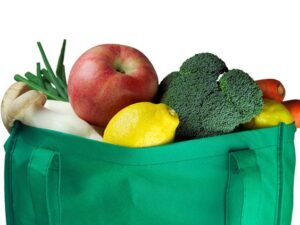
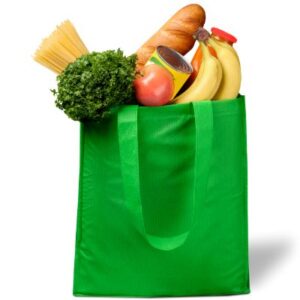
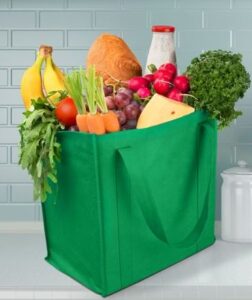
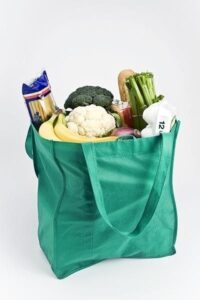

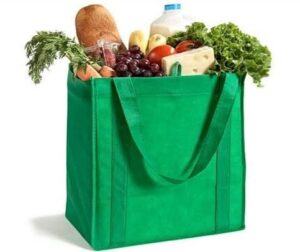


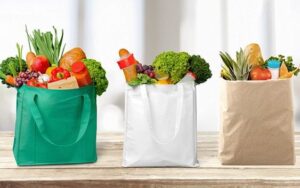
Leave a Reply